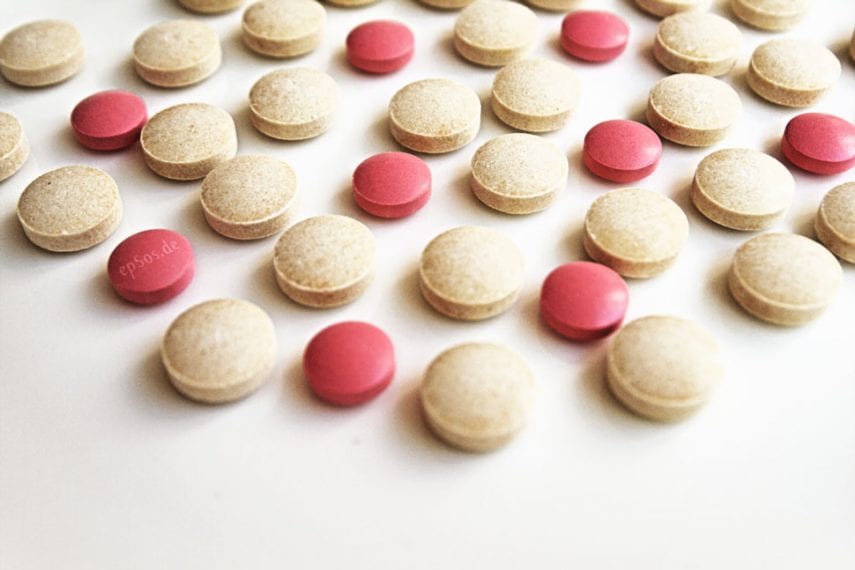#MedicatedAndMighty: Ending the Stigma of Psychiatric Medication

Last month, Erin Jones was struggling. She had stopped taking her anti-anxiety and antidepressant medications, only to find herself deeply in the grips of psychiatric distress. Determined to regain control of her mental health, she turned to her doctor for help and later posted a photograph of herself holding her prescriptions on Facebook to mark her return to treatment. The accompanying text read: “I have tried living this life without prescription help. It seems to have me on top of the world one minute and rocking in the corner the next. There is no consistency. I’m done with that. Anxiety and antidepressant medication to the rescue. Sometimes, folks, we just need help.”
Jones’ honest and brave act of self-disclosure inspired others to follow suit, posting images and stories about their own experiences with psychiatric medication using the hashtag #MedicatedAndMighty on Facebook, Twitter, and Instagram:
#MedicatedandMighty Ritalin = best thing that ever happened to me. Lexapro keeps me strong. No shame – Dandelion_Ari (@dandelion_ari)
Depression hurt me and my family. My meds have given me stability, peace, and joy. I’m not ashamed of being #MedicatedAndMighty – Bonny Mosely (@bonnyknits)
Used to wake up filled with panic EVERY. DAY. Went weeks w/o feeling like I’d ever slept. Meds literally saved my life #MedicatedAndMighty – Katelyn Gendelev (@kgendelev)
Meds keep me functional, surviving, able to participate in therapy. #MedicatedAndMighty – Mostly Exhausted (@Openyoureyes89)
Jones also received hundreds of personal messages and emails from people around the world, thanking her for opening up the conversation about mental health and medication to end stigma and start healing. In an interview with Cosmopolitan magazine, she says, “It’s as if all these people were just waiting for someone to say, ‘It’s okay to take care of yourself.” And yet, even amongst the generous outpouring of support and openness were glimpses of the stigma that keeps so many people silent, afraid and resistant to psychiatric medications, as people expressed their own fears about sharing their use of psychotropic medications:
Became depressed a year ago. Cried everyday til August. Wish I’d gone on meds sooner. That was terrifying for me to post but if it helps anyone it was worth it. #MedicatedAndMighty #EndtheStigma – Amelia Bienstock (@AmeliaBethB)
It is this fear that must be overcome in order to ensure people are able to get the help they need and break through the pain of untreated mental illness.
The Stigma of Psychiatric Medication
Mental illness occupies a unique position within the cultural imagination, in that not only are the conditions themselves highly stigmatized, but the treatments are often also met with suspicion or even outright disapproval. While medications for physical ailments are often hailed as miracles of modern science and considered an obvious response to illnesses, too often, psychiatric medications are often viewed as unnecessary, a cop-out, or even counterproductive. These attitudes stem from both a lack of recognition of mental illnesses as legitimate medical conditions and a deep ignorance of how medications function and the effect they have on people’s lives. Unfortunately, the stigma surrounding psychiatric medication can become internalized by the very people who would benefit from psychotropic treatment, and keeps people in unnecessary states of suffering.
Begin Your Recovery Journey.
877-727-4343Towards Full Engagement
Research has shown again and again that psychotropic therapy combined with psychotherapy results in the best outcomes for virtually all mental health disorders, from depression to bipolar disorder to schizophrenia. Psychiatrists with the training and expertise to craft well-considered medication protocols designed for the specific needs of each patient can offer real and profound healing as part of a comprehensive treatment approach. The right medications do not numb you or drug you into oblivion; they lift the pain of mental illness and cut through the fog of emotional distress to give you the clarity and stability you need to engage in treatment in a meaningful way. In part, this is due to the fact that the reprieve offered by psychotropic medications allows you to more fully participate in emotional and behavioral psychotherapeutic interventions such as individual and group therapies without the distraction of acute symptoms. By fortifying your psychiatric health, medication allows you to more successfully receive and integrate new knowledge, gain insights unencumbered by the distorted and intrusive thoughts your illness may produce, and create the emotional space to make meaningful changes.
Don’t Let Stigma Stop You
Using medication in mental health treatment is not a sign of weakness or taking the easy way out, it is a way of using every tool in your arsenal to restore emotional and behavioral well-being, allowing your authentic self to find expression, and giving you the support you need to move forward. By working with a compassionate psychiatrist who can evaluate your suitability for psychotropic treatment and connect you with the most effective and well-tolerated medications for your unique situation, you can begin the process of recovering from the medical condition that is keeping you from moving forward. There is no shame in getting the help you need.
Don’t let stigma stop you doing what YOU need to self care #MedicatedAndMighty – Rabbit KM (@BathysphereHat)
Bridges to Recovery is a premiere residential treatment facility dedicated to supporting people living with mental health disorders. Our psychiatrists understand the role medication can play within the larger treatment picture and work with clients to develop the most effective medication strategies to enhance quality of life and ability to participate in the recovery process. Contact us to learn more about how we can help you or your loved one on the path to healing.
Lead Image Source: Flickr user epSos .de






